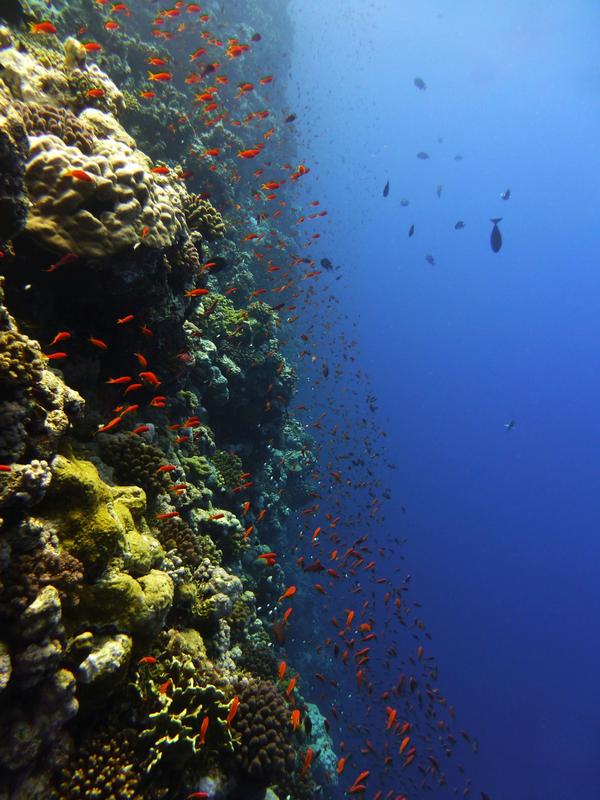Coral reefs: New third-party funding success at the University of Bremen

Coral reef in the Red Sea "Foto: Christian Wild"
Nitrogen (N) is one of the limiting nutrients in highly productive coral reef environments and thus plays a key role in the metabolism of reef organisms and the functioning of their ecosystems.
Recent research of the work group Marine Ecology revealed that microbe-mediated dinitrogen (N2) fixation is ubiquitous in coral reefs, and that active N2-fixing microbes (diazotrophs) are associated with many different important reef organisms. This for instance applies for corals, sponges, and algae.
These diazotrophs may form characteristic associations with scleractinian corals, the key reef ecosystem engineers. However, the interplay of N2 fixation with other key processes of the marine N cycle, i.e. nitrification and denitrification, and the susceptibility of all these processes to key environmental disturbances (e.g. warming and nutrient enrichment) has not yet been investigated in coral reefs.
Such processes are very likely important features of microbial N cycling in reef organisms, particularly hard corals, which can allow them to adapt to environmental changes in their fragile and important ecosystems. N2 fixation in corals appears to be essential for overcoming N starvation in oligotrophic reef environments. At the same time, in the presence of nutrient enrichment caused by human activities, both nitrification and denitrification may be important processes for maintaining the symbiotic algae (Symbiodinium) growth-limited in the coral host.
In this context, expected increases in sea surface temperature resulting from global warming can potentially alter microbial N cycling in corals and other reef organisms. Ultimately, an imbalance between N gains and losses may impact the delicate equilibrium that regulates coral symbiosis, resulting in the onset of bleaching. The state of knowledge suggests that a disturbance of microbial N cycling via ocean warming and dissolved organic carbon (DOC) eutrophication may be involved in coral bleaching.
The approved project NICE (NItrogen Cycling in Coral Reef organisms under Environmental change), using a series of interconnected descriptive and experimental studies at the central Red Sea, will thus quantify all major processes and identify associated microbial players of the N cycle in hard corals and other common reef organisms including soft corals and algae.
An interdisciplinary approach combining expertize from coral physiology, molecular microbial ecology, biogeochemistry, and reef ecology will allow testing the hypotheses mentioned above. Importantly, a range of global and local environmental disturbances (increased temperature, and inorganic as well as organic eutrophication) will be simulated to understand N cycle responses.
NICE thereby will provide novel and fundamental knowledge of N cycling in coral reef organisms in comparison. The results generated by this project will effectively contribute to a better science-based management of coral reefs.
Further information:
Universität Bremen
Fachbereich Biologie / Chemie
Marine Ecology
Prof. Dr. Christian Wild
Tel. +49 -421 218 6336
E-Mail: christian.wild@uni-bremen.de
Media Contact
More Information:
http://www.uni-bremen.deAll latest news from the category: Awards Funding
Newest articles

A universal framework for spatial biology
SpatialData is a freely accessible tool to unify and integrate data from different omics technologies accounting for spatial information, which can provide holistic insights into health and disease. Biological processes…

How complex biological processes arise
A $20 million grant from the U.S. National Science Foundation (NSF) will support the establishment and operation of the National Synthesis Center for Emergence in the Molecular and Cellular Sciences (NCEMS) at…

Airborne single-photon lidar system achieves high-resolution 3D imaging
Compact, low-power system opens doors for photon-efficient drone and satellite-based environmental monitoring and mapping. Researchers have developed a compact and lightweight single-photon airborne lidar system that can acquire high-resolution 3D…





















